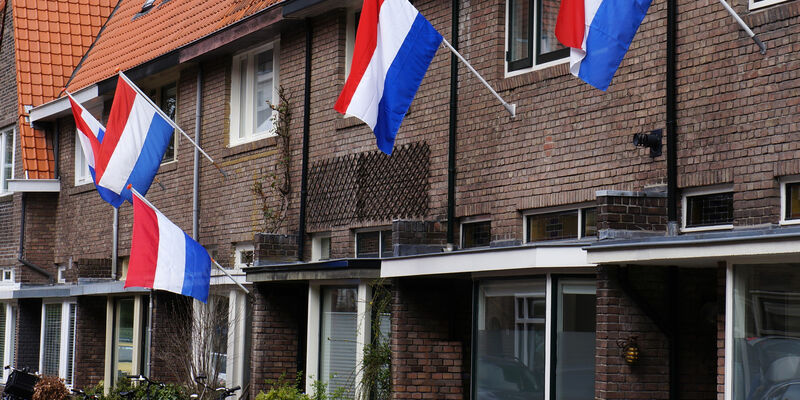
- Student
- 04/09/2019
Reintroducing the basic student grant, what are the implications?
PvdA (Social Democrats) Party leader Lodewijk Asscher has announced that it is their goal to get the basic student grant reinstated. What’s more, the party believes students currently enrolled should also get back payments. This situation raises a number of questions.
The previous government with the VVD and PvdA parties wanted to scrap the basic student grant, and they were finally successful with support from the D66 and GroenLinks parties. The decision would allow the government to free up hundreds of millions of euros for tertiary education and they claimed the amount might even go up as high as one billion euros annually.
Unfortunately, this meant that studying suddenly became very expensive and many young people felt burdened by concerns about how to finance their studies. Some even decided not to further their education.
Eventually, Groenlinks withdrew their support for the new student loan system and yesterdayPvdA followed in their footsteps. Only D66 and VVD still believe in the system and have indicated that they would like to await the results of the upcoming evaluation before making any adjustments.
What exactly does PvdA want?
The social democrats want a new basic student grant (not the old one, because that one also only served the very rich), and make a supplementary grant available for a larger group of students. PvdA leader Lodewijk Asscher said yesterday that students whose parents earn less than one hundred thousand euros per year should be eligible for this supplementary grant.
The plan is still in the works, but currently the supplementary grant is a maximum amount of €396 per month. The old system (some students are still covered by the former system) provided a maximum of 579 euros per month for a basic student grant and a supplementary grant.
A reminder: what were the proceeds from the loan system?
Scrapping the basic student grant would, in the long term, free up approximately 620 million euros a year and this amount could even go up to 800 million in the 2020s. The billion suggested by the parties is by no means correct. Savings on the student public transport card were included, but the exact figures were highly uncertain.
Where did the funds go?
To the universities. Some of it was deducted for various ancillary policies, such as those regarding progression of students from vocational education (MBO) to universities of applied sciences (HBO). At any rate, the amount involved on an annual basis is hundreds of millions of euros.
Will those millions disappear again?
The outlook is more positive and not one single party is making claims to that effect. In the new plans proposed by the PvdA, the new basic student grant would cost the government 700 million euros per year. It remains to be seen where this money will come from. The PvdA believes increasing taxes on the wealthy is an option. Funds could also be drawn from theinnovation fund that the cabinet may want to set up.
How many students would get money back?
Oddly enough, Dienst Uitvoering Onderwijs (DUO) refuses to provide information on how many students are currently under the loan system, because those figures need to be ‘coordinated and adjusted’. In 2014, more than 400,000 students received a basic student grant. That number dropped to 70,000 in the year 2018.
However, it will take a few years before the basic student grant returns – if it returns at all – but say the idea is to forgive 5000 euros of student debt for 400,000 students (as this equates to four years of basic student grant moneys for students living at home). That’s already a loss of 2 billion euros.
But haven’t the unlucky students already received vouchers?
More than one hundred million euros has now been allocated for ‘vouchers’. Vouchers are for the first batch of students who did not receive a basic student grant, but who were also denied the full benefits of the extra investments. These students will receive two thousand euros to spend on additional education five to ten years after graduation.
If it’s up to the Dutch Parliament, these students can also use their vouchers for any Master’s degree programmes they decide to enrol in immediately following graduation from their Bachelor’s degree programmes. Shortly before the summer holidays, a motion to that effect received a majority vote. Minister Van Engelshoven showed reluctance and wants to flesh out the idea. Should some form of compensation be introduced like the PvdA wants, then those vouchers will probably be deducted from the new grants.
What is happening in the political arena?
Dutch politics are all about give and take. CDA and ChristenUnie (who have 24 seats together), would like to see the basic student grant return but they are now in a government with VVD and D66 (who together hold 52 seats). So the grant is still a long way off. In the event that the Dutch Parliament does not change much after the next elections, it will be a challenge to find a majority without those two liberal parties. It seems quite certain that at least one of the two will be in the next government. At the moment, students should not get too excited about the prospect of receiving the proposed grants.
What about halving the tuition fees for first-year students?
That idea was a compromise proposed by this government: no basic student grant but lower tuition fees for first-year students. In the event that the basic student grant returns, this 50% reduction will likely disappear.
Discussion